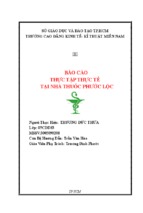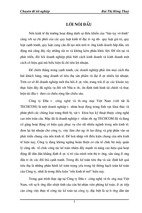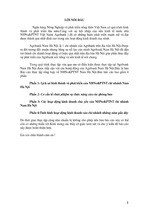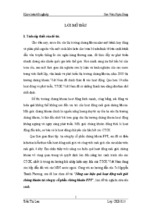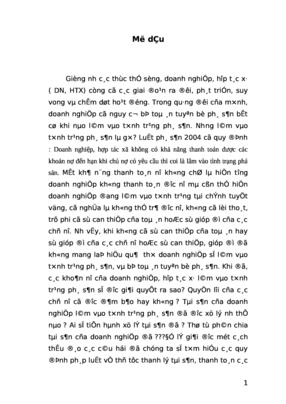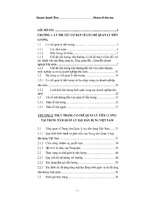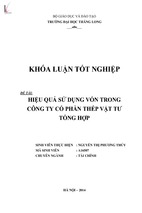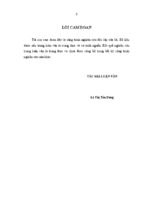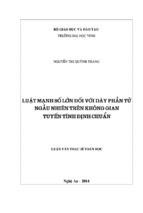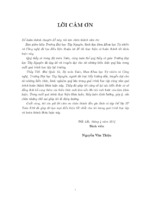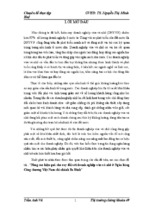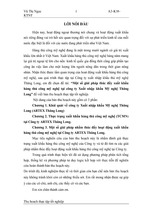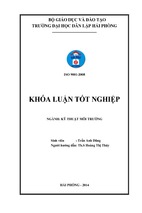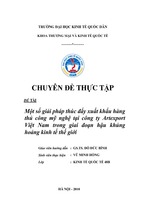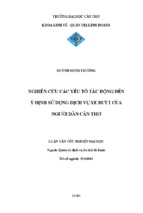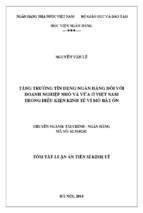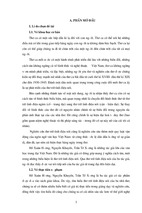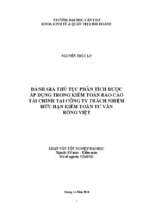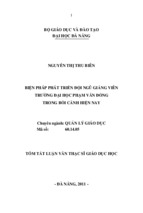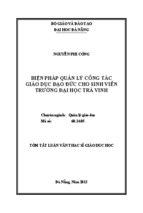English for Special Purposes - International Business
Compiled by Khang Béo
TEST 1
1. This method of payment creates cash flow problems and increases risk for the
buyer
A. Documentary credit
B. Open account
C. Bill for collection
D. Advance payment
2. Clients look for ………… from an arbitration service.
A. speed and cost effectiveness
B. reliability of the arbitrators and their decisions
C. confidentiality
D. all of the above (A, B and C)
3. The three main business areas which have traditionally been resolved by
arbitration are …………
A. shipping, commodity and construction
B. shipping, commerce and wine
C. commodity, construction and share
D. construction, shipping and convenience
4. The term used to describe attempts to restrict imports into the country
A. tax
B. quota
C. protectionism
D. tariff
5. You can ………… a house and ………… a car.
A. hire/rent
B. hire/hire
C. rent/rent or hire
6. When the Bill of lading marked "freight collected”. Who pays for the freight?
A. The Buyer
B. The Seller
C. The agent
D. It depends on the agreement
7. The clause covers General Average.
A. A
B. B
C. A,B,C
1
English for Special Purposes - International Business
Compiled by Khang Béo
8. A document that shows details of goods being transported; it entitles the
receiver to collect the goods on arrival.
A. An invoice
B. A bill of exchange
C. A bill of lading
D. A draft
9. Transferring money from Britain to another country is called sending money
…………
A. overseas
B. over-water
C. over-waves
10. Earthquake, volcanic eruption and lighting are covered under the cargo clause
…………
A. A
B. B
C. C
D. A and B
11. ………… insurance originated in the fifteenth century.
A. Boat
B. Sea
C. Navy
D. Marine
12. If the price is quoted EXW, who pays for the freight?
A. The exporter.
B. The buyer.
C. The forwarding agent.
D. The advising bank.
13. Between which 2 parties is an insurance contract made?
A. Between the insurer and the shipping company
B. Between an insurance company and the shipping company
C. Between the insurer and the party taking out insurance cover
D. Between the assured party and the party taking out insurance cover.
14. Transfer of risk from the seller to the buyer (Incoterm 2000): FAS
A. When the goods are ex-quay
B. When the goods are handed to the first carrier
C. When the goods across the ship’s rail
D. When the goods are on board
2
English for Special Purposes - International Business
Compiled by Khang Béo
15. In joint venture, two or more companies ………… on specific projects
A. collaborate
B. compete
C. practice
D. deal
16. Open cover is not a policy: the ………… will write a policy if required.
A. Insurer
B. Importer
C. Exporter
17. The Japanese yen is trading for less than its usual value. You can talk about
…………
A. a small yen
B. a bad yen
C. a weak yen
18. A merger with or the acquisition of one‟s marketing outlets is known as
…………
A. horizontal merger
B. forward merger
C. vertical merger
D. backward merger
19. In the past, a lot of small banks were ………… by larger ones.
A. bought up
B. eaten up
C. chewed up
20. If the price is quoted FOB Singapore, then the seller is not obliged to pay
insurance and freight. Right or wrong?
A. Completely right.
B. Wrong.
C. Partly right, as the seller is obliged to pay only the freight and insurance necessary to
put the goods on board of the designated vessel by the buyer.
D. Completely wrong, because the buyer is obliged to pay for insurance and freight on
his own account if term of trade is FOB
21. Normally, Risks are transferred at the point of …………
A. Delivery
B. Payment
C. Arrival
3
English for Special Purposes - International Business
Compiled by Khang Béo
22. With this method of payment, banks play an active role. Banks are responsible
for paying for the exporter in case the importer fails to do so
A. Documentary credit
B. Open account
C. Bill for collection
D. Advance payment
23. ………… is open-ended.
A. tailor-made
B. floating
C. open cover
24. If the price is quoted CPT Vancouver, who pays for the freight?
A. The exporter.
B. The forwarding agent.
C. The buyer.
D. The confirming bank.
25. Cultural differences are one of the potential ………… of international mergers.
A. threats
B. pitfalls
C. attraction
D. benefits
26. Earthquake, volcanic eruption and lighting are not covered under the cargo
clause …………
A. A
B. B
C. C
D. B and C
27. Transfer of risk from the seller to the buyer (Incoterm 2000): FOB
A. When the goods are At the seller’s premises
B. When the goods are handed to the first carrier
C. When the goods across the ship’s rail
D. When the goods are on board
28. A document used for transporting goods in containers by road, rail and ship
without being open is a …………
A. Bill of exchange
B. invoice
C. contract of carriage
D. container bill of lading
4
English for Special Purposes - International Business
Compiled by Khang Béo
29. The Mexican peso is trading for more than its usual value. You can talk about
…………
A. a big peso
B. a good peso
C. a strong peso
30. She looked at the ………… to check where the goods were produced
A. certificate of origin
B. test certificate
C. postmark
D. trade mark
31. Transfer of risk from the seller to the buyer (Incoterm 2000): CFR
A. When the goods are At the seller’s premises
B. When the goods are handed to the first carrier
C. When the goods across the ship’s rail
D. When the goods are on board
32. ………… from a source country into a destination country for the purpose of
exporting to a third country.
A. Horizontal FDI
B. Platform FDI
C. Vertical FDI
33. ………… is the money paid for the right to use the property of another person.
A. Compensation payment
B. Royalty payment
C. Property charges
D. Royalty fees
34. The bill of lading issued by the carrier for combined transport is called
…………
A. Combined bill of lading.
B. Combined bill.
C. Combined transportation bill of lading.
D. Combined transport bill of lading.
35. One problem in international mergers is the difference in ………… and benefits
for managers with similar positions.
A. duties
B. output
C. activity
D. compensation
5
English for Special Purposes - International Business
Compiled by Khang Béo
36. A marine Bill of Lading becomes negotiable document and no restriction on
ownership when it is …………
A. to order, blank endorsed
B. surrendered, blank endorsement
C. to order, endorsed
37. The risk of rough handling is covered under the cargo clause …………
A. A
B. B
C. C
D. A and B
38. All risks covered is under ………… clause
A. A
B. B
C. C
39. Joining with firms in other stages of the production or sale of a product.
A. horizontal integration
B. vertical integration
C. backward integration
D. forward integration
40. International trade develops because certain countries are able to produce some
goods more efficiently than other countries. They exchange these goods in order
to satisfied their needs and wants.
A. Countries import the goods which they produce efficiently.
B. Countries probably export the goods which are not efficiently produced.
C. Countries probably exchange goods which they produce efficiently for goods which
other countries produce efficiently.
D. Efficient exchange results from international trade.
41. The exporter didn‟t receive payment for his goods because the buyer …………
A. defaulted
B. deferred
C. declines
D. denied
42. Fixed exchange rates are achieved by the intervention of the …………
A. investment bank
B. commercial bank
C. central bank
D. merchant bank
6
English for Special Purposes - International Business
Compiled by Khang Béo
43. Many countries, such as the United Kingdom and New Zealand, are …………
dependent on international trade
A. favorable
B. heavily
C. perfectly
D. grossly
44. ………… is the situation when a ship in a storm might have to jettison certain
cargo to protect the ship and the remaining cargo
A. Average clause
B. Particular average
C. General average
D. Average clause general
45. Collecting, analyzing and reporting data relevant to a specific market situation
(such as a proposed new product) is …………
A. market analysis
B. market segmentation
C. marketing
D. market research
46. A monetary system whereby the value of currencies could be converted into gold
at a country‟s central bank
A. gold system
B. gold standard
C. gold value
D. gold convertible
47. When the Bill of lading marked "freight prepaid”. Who pays for the freight?
A. The Buyer
B. The Seller
C. The agent
D. It depends on the agreement
48. War risk is not included in …………
A. A clause
B. B clause
C. A,B,C clause
49. ………… original(s) Bill of lading constitute(s) a full set.
A. 1
B. 2
C. 3
7
English for Special Purposes - International Business
Compiled by Khang Béo
50. A bankrupt person's ………… can be taken and used to repay his/her debts.
A. things
B. items
C. property
8
English for Special Purposes - International Business
Compiled by Khang Béo
TEST 2
1. Buying a company for less than the value of its assets, the selling these assets to
make a profit is called …………
A. asset stripping
B. An acquisition
C. A takeover bid
D. A raid
2. All mergers aim to create ………… for the two companies‟ shareholders.
A. added value
B. lower costs
C. economies of scale
D. tax benefits
3. Many countries, such as the United Kingdom and New Zealand, are …………
dependent on international trade
A. favorable
B. heavily
C. perfectly
D. grossly
4. In Britain, it's not usual to discuss your personal …………
A. money
B. finances
C. money arrangements
5. Why do sellers or buyers insure their cargoes?
A. To protect themselves from loss or damage to their goods
B. To protect themselves from loss only
C. To protect themselves from damage only
D. To protect the third party from loss or damage to their goods
6. Anything that acts as a security or guarantee for a loan
A. Collateral
B. Mortgage
C. Warranty
D. Guarantee
7. ………… original(s) Bill of lading constitute(s) a full set.
A. 1
B. 2
C. 3
9
English for Special Purposes - International Business
Compiled by Khang Béo
8. Earthquake, volcanic eruption and lighting are not covered under the cargo
clause …………
A. A
B. B
C. C
D. B and C
9. A force majeure is an ………… event such as strike, riot or natural disaster
which prevents a contract from being …………
A. unforeseen / fulfilled
B. unseen / fulfilled
C. unforeseen / filled
10. The term used to describe attempts to restrict imports into the country:
A. tax
B. quota
C. protectionism
D. tariff
11. The exporter‟s bank then ………… the documents to the importer‟s bank.
A. signs
B. forwards
C. remits
D. defers
12. With the open account method of payment, payment is made
A. before the goods are shipped.
B. when there is no contract involved.
C. after the goods have arrived.
D. when the exporter doesn’t trust the buyer.
13. Undertaking to indemnify means …………
A. Disagree to pay compensation for loss or damage
B. Agree to pay compensation for loss or damage
C. Agree to pay for loss or damage without compensation
D. Agree to pay compensation for the broker
14. Buying another company‟s shares on the stock exchange, hoping to persuade
enough other shareholders to sell to take control of the company.
A. A merger
B. An acquisition
C. An integration
D. A raid
10
English for Special Purposes - International Business
Compiled by Khang Béo
15. Joining with firms in other stages of the production or sale of a product.
A. horizontal integration
B. vertical integration
C. backward integration
D. forward integration
16. Two parties sign a contract.
A. The contract is binding
B. The contract is effective
C. The contract is binding and effective
17. Employing more staff has reduced our ………… time in the port
A. turning
B. turn-round
C. turn back
D. turnover
18. A company which makes a profit can be described as profitable or …………
A. profit-getting
B. profit-making
C. profit-having
19. The agreed amount of money to give insurance cover is …………
A. Premium
B. life insurance
C. marine insurance
D. compensation
20. Here's the fifty dollars I …………
A. owe you
B. pay you back
C. must return
21. If the price is quoted FOB Singapore, who pays for the insurance and freight?
A. The exporter.
B. The buyer
C. The forwarding agent.
D. The confirming bank.
22. Multinational companies usually have ………… in different countries.
A. daughter companies
B. subsidiaries
C. factories
D. colleagues
11
English for Special Purposes - International Business
Compiled by Khang Béo
23. The government has imposed protective tariffs to stop the ………… of cheap
imports which threatened to destroy domestic industries
A. rain
B. famine
C. flood
D. storm
24. What do we call the difference between a country‟s imports and exports?
A. the balance of trade
B. the balance of payments
C. the surplus
D. the deficit
25. Multinational companies can adapt their management method to the …………
in each country or continent.
A. their culture
B. local conditions
C. local culture
D. local people
26. Insurance companies can be considered as professional ………… Takers
A. life
B. risk
C. chance
D. misfortune
27. The payment method needs complete trust between the exporter and the
importer.
A. Bill for collection
B. Letter of credit
C. Advance payment
D. Open account
28. After dispatching the goods, the exporter ………… the documents to his bank.
A. demands
B. collects
C. issues
D. presents
29. You can ………… a house and ………… a car.
A. hire/rent
B. hire/hire
C. rent/rent or hire
12
English for Special Purposes - International Business
Compiled by Khang Béo
30. A merger with or the acquisition of one‟s marketing outlets
A. horizontal integration
B. vertical integration
C. backward integration
D. forward integration
31. A person who receives an international payment is called the …………
A. getter
B. beneficiary
C. receiver
32. A public offer to buy a company‟s shareholders to buy their shares, at a
particular price during a particular period, so as to acquire a company
A. A merger
B. An acquisition
C. A takeover bid
D. A raid
33. Among other things, a ………… contains details of the goods, their destination
and the name of the ship carrying them.
A. bill of lading
B. way-bill
C. bill of exchange
D. receipt
34. This method of payment creates cash flow problems and increases risk for the
buyer.
A. Documentary credit
B. Open account
C. Bill for collection
D. Advance payment
35. With this method of payment, banks play an active role. Banks are responsible
for paying for the exporter in case the importer fails to do so.
A. Documentary credit
B. Open account
C. Bill for collection
D. Advance payment
36. The bill of lading issued by the carrier for sea transport is called …………
A. Seaway bill.
B. Ocean bill.
C. Sea waybill.
13
English for Special Purposes - International Business
Compiled by Khang Béo
37. Currency bought or sold today with delivery two business days later
A. Spot transaction
B. Forward transaction
C. business transaction
D. Futures transaction
38. Who issues ocean bill of lading?
A. Captain
B. Exporter
C. Shipping company
D. Agent
39. Some manufacturers were accused of …………, in other words selling goods
abroad at a lower price than they were sold domestically.
A. dumping
B. revaluing
C. flooding
D. devaluation
40. Transfer of risk from the seller to the buyer (Incoterm 2000): DES
A. When the goods are ex-ship
B. When the goods are handed to the first carrier
C. When the goods across the ship’s rail
D. When the goods are on board
41. My endowment policy will ………… when I‟m sixty-five
A. ripen
B. mature
C. flourish
D. break
42. The bill of lading issued by the carrier for rail transport is called …………
A. Railway bill.
B. Rail waybill.
C. Railway consignment note.
D. Railway bill of lading.
43. Merging with or taking over other firms producing the same type of goods or
services is known as …………
A. horizontal merger
B. diversification
C. vertical merger
D. backward merger
14
English for Special Purposes - International Business
Compiled by Khang Béo
44. Make sure all this equipment is insured ………… accidental damage
A. over
B. against
C. with
D. from
45. Transfer of risk from the seller to the buyer (Incoterm 2000): DAF
A. When the goods are at frontier
B. When the goods are handed to the first carrier
C. When the goods across the ship’s rail
D. When the goods are on board
46. All risks covered is under ………… clause
A. A
B. B
C. C
47. Factors that can give a country an absolute or comparative advantage in goods
and services over other countries are …………
A. factors of production, most importantly raw materials, but also labor pool
B. climate, economies of scale.
C. natural resources and location
D. All of these above
48. If the price is quoted CPT Vancouver, who pays for the freight?
A. The exporter.
B. The forwarding agent.
C. The buyer.
D. The confirming bank.
49. The person who goes between the person who wants the insurance and the
person who underwrites it is …………
A. a shipper
B. a client
C. a broker
D. an insurer
50. Normally, Risks are transferred at the point of …………
A. Delivery
B. Payment
C. Arrival
15
English for Special Purposes - International Business
Compiled by Khang Béo
TEST 3
1. The person who goes between the person who wants the insurance and the
person who underwrites it is …………
A. a shipper
B. a client
C. a broker
D. an insurer
2. Transferring money from Britain to another country is called sending money
…………
A. overseas
B. over-water
C. over-waves
3. The ………… form you fill in is the basis of your contract with the insurance
company
A. proposition
B. application
C. enrolment
D. proposal
4. Factors that can give a country an absolute or comparative advantage in goods
and services over other countries are …………
A. factors of production, most importantly raw materials, but also labor pool
B. climate, economies of scale.
C. natural resources and location
D. All of these above
5. One problem in international mergers is the difference in ………… and benefits
for managers with similar positions.
A. duties
B. output
C. activity
D. compensation
6. When the total value of a country‟s imports is greater than its exports, it is a
trade …………
A. balance
B. loss
C. debit
D. deficit
16
English for Special Purposes - International Business
Compiled by Khang Béo
7. Some of the language in insurance ………… is incomprehensible to most
ordinary people.
A. premiums
B. policies
C. rates
D. invoices
8. The bank notifying the exporter that the letter of credit has been opened is
called …………
A. The issuing bank.
B. The advising bank.
C. The confirming bank.
D. The opening bank.
9. If the price is quoted FOB Singapore, who pays for the insurance and freight?
A. The exporter.
B. The buyer
C. The forwarding agent.
D. The confirming bank.
10. In many cases, the insurance company doesn't take the financial …………
A. problem
B. risk
C. damage
11. An insolvent company often goes into liquidation. A private individual who
cannot pay his/her debts may be declared ………… by a court.
A. bankrupt
B. indebted
C. penniless
12. Undertaking to indemnify means …………
A. Disagree to pay compensation for loss or damage
B. Agree to pay compensation for loss or damage
C. Agree to pay for loss or damage without compensation
D. Agree to pay compensation for the broker
13. The document which shows details of goods being transported and which
entitles the receiver to collect the goods is called a …………
A. bill of exchange
B. document of title
C. bill of lading
D. declaration
17
English for Special Purposes - International Business
Compiled by Khang Béo
14. ………… takes place when a firm through FDI moves upstream or downstream
in different value chains i.e., when firms perform value-adding activities stage
by stage in a vertical fashion in a host country.
A. Horizontal FDI
B. Platform FDI
C. Vertical FDI
15. A bank that issues a letter of credit (i.e. the importer‟s bank).
A. Collecting bank
B. Issuing bank
C. Confirming bank
D. Advising bank
16. Collecting, analyzing and reporting data relevant to a specific market situation
(such as a proposed new product) is …………
A. market analysis
B. market segmentation
C. marketing
D. market research
17. Clients look for ………… from an arbitration service.
A. speed and cost effectiveness
B. reliability of the arbitrators and their decisions
C. confidentiality
D. all of the above (A, B and C)
18. Which market is bigger?
A. Super market is bigger than traditional market
B. Street market is bigger than home market
C. An open air market is bigger than a home market
D. Product market is bigger than consumer market
19. A bill of exchange become payable upon …………
A. remittance
B. acceptance
C. dispatch
D. maturity
20. Multinational companies usually have ………… in different countries.
A. daughter companies
B. subsidiaries
C. factories
D. colleagues
18
English for Special Purposes - International Business
Compiled by Khang Béo
21. ………… are raw materials such as agricultural products and metals that are
traded on special exchanges.
A. Goods
B. Raw materials
C. Productivity
D. Commodities
22. ………… is the situation when a ship in a storm might have to jettison certain
cargo to protect the ship and the remaining cargo
A. Average clause
B. Particular average
C. General average
D. Average clause general
23. What is the most complete cover of insurance?
A. No partial loss is payable
B. Partial loss is payable
C. It only covers total loss
D. Against all risks
24. Insurance companies can be considered as professional ………… Takers
A. life
B. risk
C. chance
D. misfortune
25. An evidence that an insurance contract has been made is …………
A. An insurance certificate
B. A certificate of origin
C. A health certificate
D. A compensation certificate
26. The point of delivery is much the same for all ………… terms and …………
terms – when the exporter hands the goods over to the carrier.
A. C and F
B. D and F
C. C and D
27. She looked at the ………… to check where the goods were produced
A. certificate of origin
B. test certificate
C. postmark
D. trade mark
19
English for Special Purposes - International Business
Compiled by Khang Béo
28. Transfer of risk from the seller to the buyer (Incoterm 2000): FAS
A. When the goods are ex-quay
B. When the goods are handed to the first carrier
C. When the goods across the ship’s rail
D. When the goods are on board
29. A life insurance policy pays out ………… your death or after a set period,
whichever is first.
A. in case of
B. if
C. in the event of
30. In the UK, mergers and acquisitions are not ………… by the government.
A. controlled
B. checked
C. regulated
31. Transfer of risk from the seller to the buyer (Incoterm 2000): DES
A. When the goods are ex-ship
B. When the goods are handed to the first carrier
C. When the goods across the ship’s rail
D. When the goods are on board
32. When a company‟s top executives buy the company they work for is known as
…………
A. a raid
B. a takeover bid
C. a merger
D. an acquisition
33. Normally, Risks are transferred at the point of …………
A. Delivery
B. Payment
C. Arrival
34. Two parties sign a contract.
A. The contract is binding
B. The contract is effective
C. The contract is binding and effective
35. A country with very low taxes is known as a …………
A. tax heaven
B. tax haven
C. tax paradise
20
- Xem thêm -

